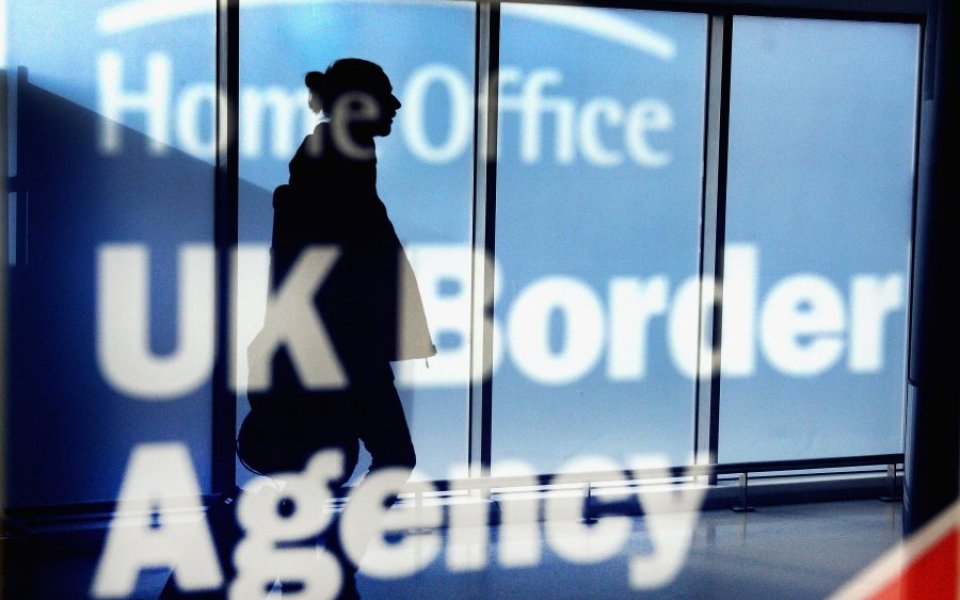Business groups slam proposals for new £1000 annual tax on non-EU workers, saying levy will send message that UK is no longer open to international talent

In a move that business groups say "sends a signal to the rest of the world that UK is not an attractive place to invest and do business", an expert committee has today recommended that the government tighten rules and impose a major new tax for employing non-EU migrant workers.
The Migration Advisory Committee (MAC), a group of experts who advise the government on immigration issues, said this morning that the government should raise the minimum annual salary requirements for skilled migrant workers on so-called Tier 2 visas by 44 per cent, from the current level of £20,800 to £30,000.
The committee said the changes would result in at least 27,600 fewer foreign workers coming to Britain each year, even if businesses made no behavioural changes to their hiring practices.
After the General Election in May, Prime Minister David Cameron asked the MAC to look at proposals to cut migration to the UK from outside the European Economic Area (EEA), including raising salary thresholds for skilled workers.
READ MORE: Tightening rules for foreign workers is "clear threat to London"
The committee published a preliminary report last year, but said in its final recommendations today that a higher salary threshold would be a "better representation of the higher qualifications now required to be eligible for this route".
The MAC also said it "strongly supports" the introduction of an Immigration Skills Charge (ISC), a new tax on companies employing foreign workers, saying the levy will "incentivise employers to reduce their reliance on migrant workers and encourage them to invest in training UK employees".
The committee suggested a £1,000 annual charge for each Tier 2 migrant employed by a company.
Chancellor of the exchequer George Osborne had proposed a new "skills levy" on employers giving jobs to foreign workers in his emergency summer budget last July.
READ MORE: Nearly three in four firms say cutting skilled migration will hurt UK economy
Employers and business groups have already rejected the MAC's recommendations.
Institute of Directors director general Simon Walker urged the government to dismiss the proposals today, saying they would damage business while doing little to reduce overall migration.
"The MAC’s proposals will hurt thousands of individual firms, which will find it harder to bring in the skilled workers in areas like IT, where we have shortages," Walker said. "Coming on top of the new apprenticeship levy, and the national living wage, the new tax on recruiting from overseas will pile further costs on businesses.
"This will send a message around the world that the UK is no longer open to international talent."
READ MORE: Businesses warn Tories over migration curbs
Tim Thomas, head of employment and skills policy at EEF, agreed, saying that employers are "already paying high rates to attract top talent".
"Plans to increase the salary threshold and apply a £1,000 per year charge on employers that recruit non-EEA employees will substantially hike up the price," Thomas said. "Some employers will be able to keep pace with this premium but, others, particularly SMEs will struggle to do so."
Thomas added that the EEF was especially concerned about a separate MAC recommendation to require all non-EU workers moving to the UK via an "intra-company transfer" to work for their employer for a minimum of two years before immigrating. The current qualifying period is 12 months.
"Global businesses have an expectation that they are able to move talent globally," Thomas said. "Restricting this reduces their ability to win and meet orders and subsequently damage their competitiveness. It also sends a signal to the rest of the world that UK is not an attractive place to invest and do business."
Last year, Britain's biggest businesses warned the government against tightening rules for employing foreign workers, saying that new restrictions could increase costs, jeopardise graduate schemes and encourage firms to move their operations overseas.
Asda, Lloyds Banking Group, Rolls-Royce, Siemens and others made their case in formal submissions to the MAC over the summer.